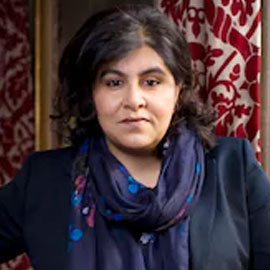Islamic Wills & The Rule of Law in UK
|
Download PDF
March 2014 Muslim Women�s Network UK Explanatory Statement Islamic Wills & The Rule of Law in UK Last week an article entitled 'Islamic law is adopted by British legal chiefs.' caused great concern; fears of inequality and an attack on human rights as well as to British values were cited as key reasons. Given Muslim Women's Network UK's commitment to promoting understanding of gender in Islam from a human rights perspective and the widespread concern shown, we felt it necessary to clarify the matter for your ease and reference. Contrary to the article title, Islamic law has not been adopted. Wills are written so that upon death, your wealth including property and possessions are bestowed as per your wish. Under UK law, provided a will is legal and equitable, you decide who receives your wealth; there are famous cases of individuals leaving estates to animals for example. Therefore, a Muslim who wants to ensure that their will is Islamically compatible is in line with the stance of UK law - it is not adoption but reaffirmation of the status quo. The issue however is what is deemed Islamic. We have read the Practice Note2 issued by the Law Society; the gender-equitable interpretations that we would put forward are not there. That does not mean the concept of Shariah compliant wills is wrong. Rather, it makes clear that we need to raise awareness of the alternative gender-equitable Islamic interpretations surrounding the principles of inheritance. The Practice Note states for example, that 'male heirs in most cases receive double the amount inherited by a female heir of the same class'; this suggestion is based on a traditionalist, and may we add patriarchal interpretation of the Qu'ran. The very same verse, which mentions a male receiving twice the share of the female, also mentions that such distributions are only to be made after any betrothed legacies and debts have been settled4. In other words, any unaccounted for wealth. Therefore, not only is a woman's right to inherit wealth established but the proportions are at the discretion of the testator; men and women can inherit equal amounts and women can even inherit more, should the testator so wish. Moreover, a further school of thought suggests that even if such rules were applicable generally, this was for a time in which men had the responsibility of the household and would therefore have to use their inherited wealth to support others whilst a woman would keep the whole of her share for herself, thus justifying the difference in proportions. The fact that women are now equal contributors to society therefore makes these inheritance principles irrelevant. Furthermore, the suggestion that the offspring of illegitimate relationships cannot inherit appears contradictory to another principle expressly stated in the Qu'ran; No bearer of burdens shall bear the burdens of another5. Even if the suggestion is that there is fault in the parents' relationship, how can we justify punishing the offspring of such a relationship when the Qu'ran itself states otherwise? Keeping the wealth of an orphan is also considered a sin6; yet another Islamic principle that is part of the Islamic laws of inheritance which has not been taken into consideration. The rules around adoption are also not as straightforward; where a child has drank the breast milk of another woman, that woman is considered 'Mahram'; how can this child then not inherit wealth should said woman so wish? Similarly, during the early period of Islam, Muslims were not prohibited from inheriting wealth from their non-Muslim relatives and vice versa, with the proviso being that the individual concerned is not one who is at war with Islam, or a 'harbi'. In turn, whilst we are disappointed with the Law Society's reliance on such patriarchal interpretations, we must stress that Islam itself is not the cause for concern. We further hope that the Law Society will re-evaluate its Guidance accordingly. We must also stress that what has been issued by the Law Society is guidance, not law - it has no legal standing. And just like a Muslim marriage contract can be tailored to each individual so can a will; the key word is choice, which you have both under Islam and UK law. On that note, where there is a situation a testator has based their will on such guidance and is unfair - UK law remains supreme. There are various laws that can be relied upon, including the Inheritance (Provisions for Family and Dependants) Act 1975, which can be relied on to challenge a will on the basis of fairness. We hope this has helped to clarify the situation and we confirm that MWNUK remains committed to advocating for the rights of Muslim women and also towards your economic empowerment. On behalf of Muslim Women's Network UK, Nazmin Akthar (Vice-Chair) The name of one of our Board Members, Robina Iqbal, has appeared in an open letter to the Law Society by the 'One Law For All' campaign on this subject. We would like to confirm that Robina's name has appeared on the list of signatories without her permission and we have requested an immediate rectification. ________________________________________________________________________ 1 http://www.telegraph.co.uk/news/religion/10716844/Islamic-law-is-adopted-by- British-legal-chiefs.html 2 http://www.lawsociety.org.uk/advice/practice-notes/sharia-succession-rules/ 3 Ibid. 4 Qu'ran [4: 7 - 14] 5 Qu'ran [35:18] 6 Qu'ran [4:10] |
|















